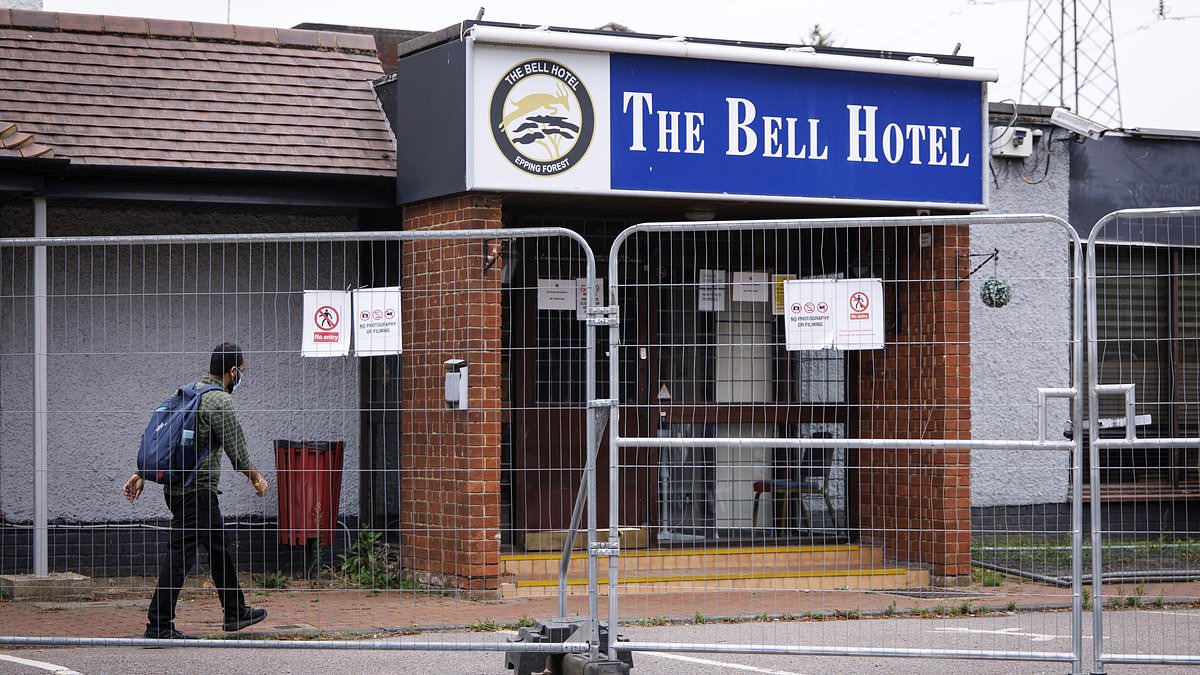The judge who ordered a hotel in Essex to stop housing migrants should have considered banning the protests instead, the Court of Appeal has suggested.
The court yesterday issued its full judgment on the case of The Bell Hotel in Epping, having overturned a High Court injunction that ordered the removal of asylum seekers.
Lord Justice Bean, sitting with Lady Justice Nicola Davies and Lord Justice Cobb, criticised High Court judge Mr Justice Eyre, saying he ‘did not appear to consider what alternative measures to mitigate the disruption caused by protests were available’.
The judgment states: ‘Epping do not appear to have considered such alternatives either. These could either be measures taken by the police… or an application by the council for an injunction against certain forms of protest.’
Last night, Tory justice spokesman Robert Jenrick said: ‘At the invitation of [Home Secretary] Yvette Cooper’s lawyers, the Court of Appeal ruled the public interest was in keeping illegal migrants in hotel accommodation, while the harms to Epping residents were put aside.
‘It even encourages councils and the police to curb local protests rather than stopping the use of hotels housing illegal migrants.
‘It’s there in black and white: the entire system has been turned against the British people.’
The Bell Hotel saw weeks of anti-immigration protests this summer, and Epping Forest District Council obtained a temporary court order to stop 138 asylum seekers being housed there, claiming it broke planning rules.
But Somani Hotels, which owns The Bell, and the Home Office challenged the interim injunction and on Friday it was quashed by the Court of Appeal. The judges said Mr Justice Eyre’s decision was ‘seriously flawed in principle’.
The ruling sparked fury among MPs, with critics saying illegal migrants now have more rights than Britons under Keir Starmer.
The judgment also states that housing asylum seekers in taxpayer-funded hotels is in the ‘public interest’, and forcing them to move would cause them disruption. They would have had to switch GPs if they were forced out, the Court of Appeal said.
Lord Justice Bean added: ‘The most important factor against the grant of interim relief is the importance of the public interest in the accommodation of destitute asylum seekers.
‘All of them are now registered with local medical practices and there will be disruption in that respect as well as in the move to a different location.’
